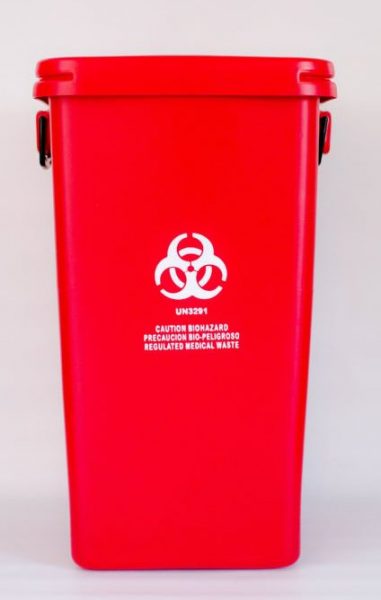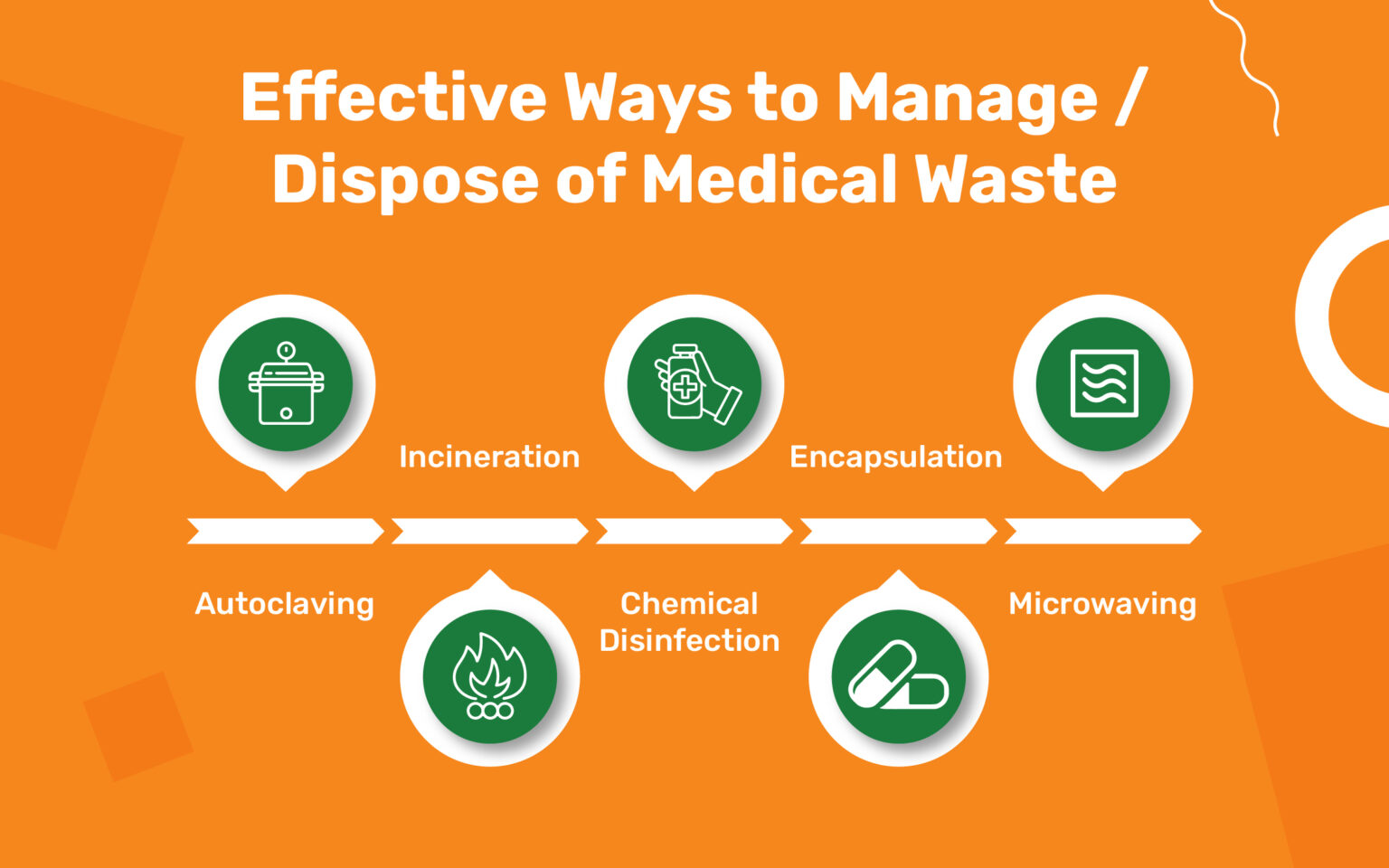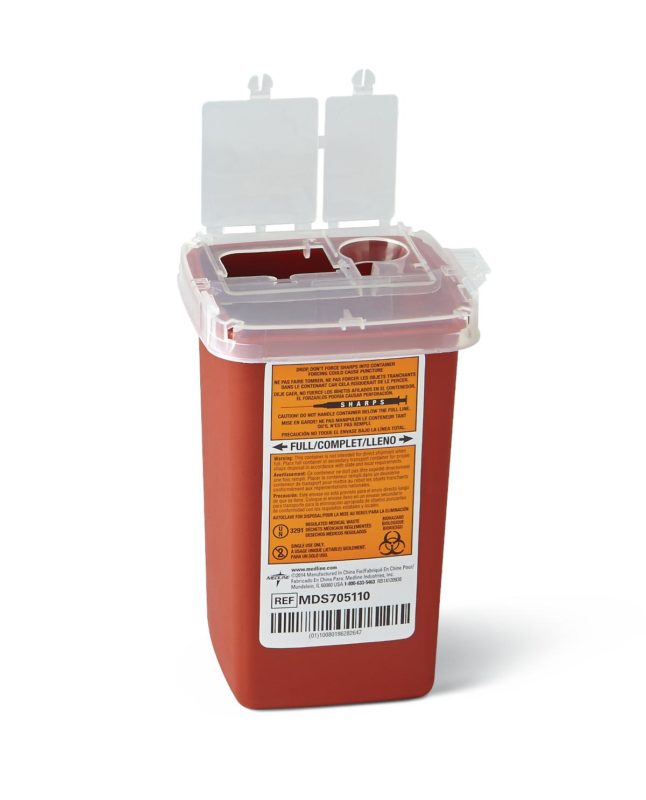Proactive Health And Wellness Solutions: Selecting the very best Medical Waste Removal Near You
Proactive Health And Wellness Solutions: Selecting the very best Medical Waste Removal Near You
Blog Article
Stay Ahead of Regulations: Professional Suggestions on Medical Waste Disposal
In a world where the medical care sector is frequently evolving, it is important for clinical centers to remain in advance of regulations when it comes to the correct disposal of clinical waste. From understanding the different groups of clinical waste to executing the ideal collection and partition approaches, this conversation will give beneficial insights and workable ideas to assist centers remain in advance of policies in the ever-changing landscape of medical waste disposal.
Recognizing Clinical Waste Categories
Comprehending clinical waste categories is vital for proper disposal and administration in medical care facilities. Clinical waste refers to any kind of waste produced by healthcare activities that might position a threat to public health and wellness or the environment. It is critical to categorize clinical waste properly to ensure its risk-free handling, disposal, transportation, and treatment.
There are several classifications of clinical waste that healthcare facilities require to be accustomed to. One of the most usual classifications consist of contagious waste, pathological waste, sharps waste, pharmaceutical waste, and chemical waste. Each group has particular standards and policies for its correct administration and disposal.
Pathological waste refers to human tissues, organs, or body parts that require special handling and disposal. Drug waste comprises run out, extra, or infected medicines that require mindful handling and disposal.
Remaining Up-To-Date With Regulatory Adjustments
Remaining present with governing adjustments is important for health care facilities to make sure conformity and correct monitoring of medical waste disposal. medical waste removal service. With guidelines frequently evolving, it is crucial for healthcare facilities to remain up-to-date to prevent penalties, fines, and prospective injury to the setting and public wellness
To remain ahead of regulative adjustments, medical care centers should establish a system for tracking and tracking updates. This can be done by signing up for regulatory newsletters, attending workshops and seminars, and actively joining market associations. Additionally, centers ought to mark an employee or team in charge of remaining notified and disseminating details to appropriate stakeholders.
Routine interaction with regulative agencies is also crucial. Health care centers ought to develop relationships with regional, state, and government agencies to guarantee they recognize any type of adjustments in policies that might influence their waste management practices. This can be done with normal meetings, involvement in public remark periods, and positive involvement with regulatory companies.
Moreover, healthcare centers ought to take into consideration partnering with waste administration companies that concentrate on medical garbage disposal (medical waste disposal services with WasteX). These business are often skilled in the most up to date regulations and can offer support and assistance to make certain conformity
Implementing Appropriate Collection and Segregation Techniques
To properly take care of clinical waste disposal, healthcare facilities need to develop correct collection and partition methods based on regulative standards. Implementing these techniques ensures the safe handling and disposal of potentially unsafe products, safeguards the setting, and lessens the risk of injuries and infections to medical care workers and the public.
Appropriate collection and partition techniques involve the usage of assigned containers and identifying systems. Medical care facilities must give clearly identified containers for various sorts of medical waste, such as sharps, infectious waste, pharmaceutical waste, and non-hazardous waste. These containers must be color-coded and plainly significant to stay clear of complication and advertise very easy identification.
Additionally, medical care centers need to educate their staff on the correct treatments for gathering and segregating clinical waste. This consists of informing them on the different kinds of waste, the proper containers to use, and the relevance of complying with guidelines and policies. Routine training sessions and correspondence course need to be carried out to guarantee that team member remain current on best techniques.
Moreover, healthcare centers must develop a system for routine collection and disposal of medical waste. This might involve partnering with accredited waste management companies that specialize in clinical waste disposal. These firms will guarantee that the collected waste is transferred and gotten rid of in conformity with regulative requirements.
Selecting the Right Disposal Approaches

Incineration is just one of the most common and efficient approaches for taking care of specific kinds of clinical waste, such as look at here now pathological waste and sharps. It involves the controlled combustion of waste at high temperature levels, reducing it to ash. Nonetheless, incineration can launch unsafe pollutants right into the air and add to air contamination.

Chemical treatment involves the use of chemicals to sanitize and reduce the effects of the waste. Microwave therapy uses microwave energy to heat and disinfect the waste.
Guaranteeing Compliance Via Documentation and Training
After very carefully thinking about the suitable disposal methods for medical waste, medical care facilities have to make certain conformity with regulations and minimize environmental influence by implementing reliable paperwork and training procedures. This step is crucial in preserving a risk-free and lasting environment for both medical care employees and the general public.

Health care workers who manage clinical waste must get ideal training on waste partition, taking care of, and disposal treatments. By giving comprehensive training, healthcare centers can encourage their personnel to make educated decisions and reduce the danger of inappropriate waste disposal.
Conclusion
Finally, staying in advance of regulations in clinical garbage disposal is crucial for medical care centers. medical blog here waste removal services. medical waste disposal services with WasteX Comprehending the different categories of clinical waste, remaining updated with regulatory changes, implementing correct collection and partition techniques, choosing the appropriate disposal approaches, and making certain compliance through documents and training are all crucial actions. By following these standards, health care organizations can effectively take care of and dispose of medical waste in a accountable and safe fashion
From comprehending the different groups of medical waste to implementing the appropriate collection and partition methods, this conversation will provide actionable suggestions and useful understandings to assist facilities stay in advance of guidelines in the ever-changing landscape of clinical waste disposal. - medical waste disposal services with WasteX
The most typical groups consist of infectious waste, pathological waste, sharps waste, pharmaceutical waste, and chemical waste. Health care facilities must give plainly labeled containers for different types of medical waste, such as sharps, contagious waste, pharmaceutical waste, and non-hazardous waste. Health care centers need to develop a comprehensive system to tape-record and track all elements of medical waste disposal, including types of waste produced, quantities, and disposal techniques utilized. Health care workers who deal with medical waste must get proper training on waste segregation, managing, and disposal procedures.
Report this page